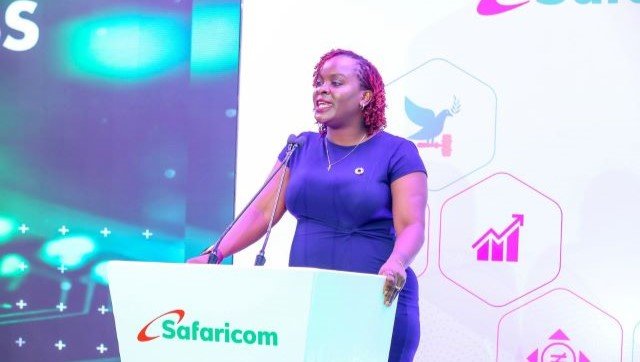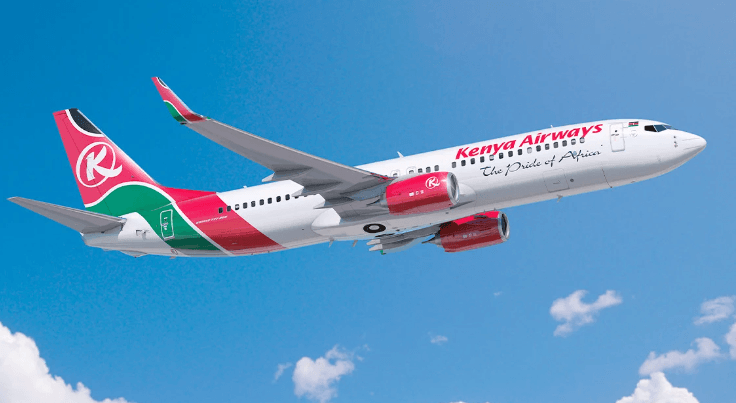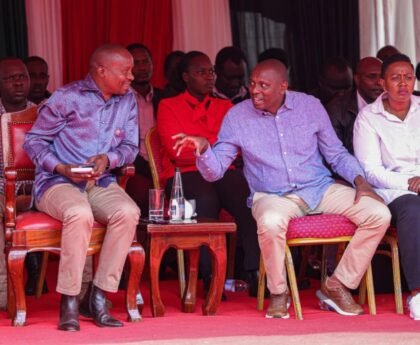In a candid conversation, Karen Basiye, Safaricom’s Director of Sustainable Business and Social Impact, reflected on the transformative journey of the M-PESA Foundation. Now marking its 15th anniversary, the Foundation has established itself as a key driver of social progress in Kenya, particularly through strategic investments in education, healthcare, environmental conservation, and community development.
Speaking to HapaKenya, Basiye outlined M-Pesa Foundation’s major accomplishments over the years and what the future holds.
What major accomplishments stand out over the Foundation’s 15-year history?
Karen Basiye: The M-PESA Foundation is built around long-term, high-impact projects aimed at solving Kenya’s most urgent development challenges. Our work spans four key pillars—health, education, environment, and community empowerment.
In the health sector, we’re constructing modern maternal and newborn care units across 30 counties, including Makueni, Marsabit, and Trans Nzoia. These facilities are often more advanced than older hospitals. We also operate a targeted fistula program in high-burden areas like Bungoma and Kisumu, helping restore dignity to affected women. Additionally, mobile medical camps and telemedicine have helped us reach over 70,000 people in remote regions. We’re also developing an emergency transport system in partnership with USAID and the government.
On the environmental front, our early project—the Nairobi Green Line—aimed to shield Nairobi National Park from urban encroachment. We’ve also worked to protect the roan antelope in Ruma National Park, supported elephant conservation at Lewa Conservancy, preserved the Kakamega Forest, and launched efforts to rehabilitate the Mau Forest ecosystem.
In education, we’ve built modern, tech-equipped schools in five counties. Beyond infrastructure, we’ve also responded swiftly to social issues. After the heartbreaking suicide of a young girl over period stigma, we launched the Keeping Girls in School program, which now provides annual sanitary towels to nearly 800,000 girls in Class 8 and Form 4. This adaptability also enables us to respond to disasters when communities are in crisis.
Our community projects include the construction of the Yalani dam, which supplies water to 90,000 people and supports over 400 farmers. It’s been so impactful that two more dams are already in the works. We also support women entrepreneurs with microcredit and training to build economic resilience.
Are there any standout stories that capture the Foundation’s legacy?
Karen Basiye: Two stories come to mind that truly speak to the heart of our mission.
One is about a young girl from a remote village who joined our Academy through a full scholarship. She excelled, secured a spot in a U.S. university, and now works at Goldman Sachs. What’s even more inspiring is that she has started giving back to her home community. That’s the kind of transformation we aim for—young people returning with knowledge and resources to uplift others.
Another unforgettable moment involved an elderly woman, nearly 90 years old, who had lived with fistula for almost seven decades. After receiving surgery through our program, she tearfully told us, “I can finally walk to my relatives’ graves and be part of my community again.” That moment was a reminder of how deeply restorative our work can be.
From treating heart conditions via telemedicine in Samburu to equipping classrooms across counties, each story shows the ripple effect of our efforts.
What role have partnerships played in achieving this impact?
Karen Basiye: Collaboration is central to our strategy. We work with a variety of partners, including the Ministry of Education and the World Bank, on initiatives like teacher training. Locally, we collaborate with Constituency Development Funds (CDFs) to maximize the impact of pooled resources.
Private philanthropists contribute land or other assets, while we handle implementation. Internationally, we’ve received support from organizations like the Conrad N. Hilton Foundation, especially for our work in water access and youth development. Without these partnerships, our reach would be much more limited.
What measurable improvements have resulted from the Foundation’s work?
Karen Basiye: In Samburu, cultural norms made it hard for women to access maternal care. Many needed spousal consent to visit hospitals, and there was resistance to male doctors. We tackled this through a comprehensive, county-wide approach—upgrading facilities and working with both national and local governments to ensure care was accessible and culturally respectful.
In places like Lamu, maternal deaths have significantly decreased since we built a new maternity wing, and immunization rates are now at 92%. In Samburu, we’ve introduced mobile-based reminders in local languages to keep women informed about antenatal visits and child vaccinations. Combining infrastructure with technology has proven to be a game-changer.
What’s next for the M-PESA Foundation?
Karen Basiye: We’ve launched the Citizens of the Future program to nurture well-rounded, educated, and skilled young people. Plans are underway to modernize 600 schools with better classrooms, ICT and science labs, and scholarships for senior secondary school students.
We’re also focusing on women’s economic empowerment through the Wezesha Mama fund, which will offer grants, digital literacy, and training to at least 5,000 women.
Environmental restoration remains a priority. We’re working with the Kenya Forest Service to revive City Park, starting with fencing and moving on to beautification. We’re also scaling our restoration of water towers to protect water resources for the long term.
In health, we’re rethinking our model. Instead of one maternal unit per county, we’re considering a “deep-dive” approach—focusing on counties with the greatest needs and transforming all maternal care units within them. We’re also exploring advanced areas like cancer diagnostics, where access is limited.
What new directions might the Foundation explore?
Karen Basiye: We constantly reflect on whether our interventions are achieving maximum impact. Moving forward, we’re committed to expanding the use of technology across all programs to scale faster and more efficiently.
We’re exploring how to support refugee communities and are looking into new areas like precision public health. For instance, with only one PET scan machine in Kenya, we’re evaluating how we can help bridge such critical health gaps. Our work remains dynamic, always guided by Kenya’s evolving needs.
What would you like to say to stakeholders and communities on this milestone?
Karen Basiye: First, to the communities—thank you. Your trust and hospitality have allowed us to do this work. You are the reason we exist.
To our partners and stakeholders, your continued support is invaluable. Together, we can achieve so much more, and we’re committed to building an even stronger future for all Kenyans.
Beyond education, how would you like the M-PESA Foundation to be remembered in 50 years?
Karen Basiye: I dream of a Kenya transformed by the seeds we’re planting now. I want our *Citizens of the Future* Scholars to become a generation of change-makers—leaders, innovators, and community builders.
I envision a country where desertification has been reversed, and every mother and child has access to safe, quality healthcare. I hope future generations will look back and recognize that this small Foundation had a bold vision and took the first steps to address big challenges.
At the heart of my dream is a simple picture: my grandchildren resting peacefully under the shade of thriving trees—living in a prosperous, equitable, and green Kenya.




